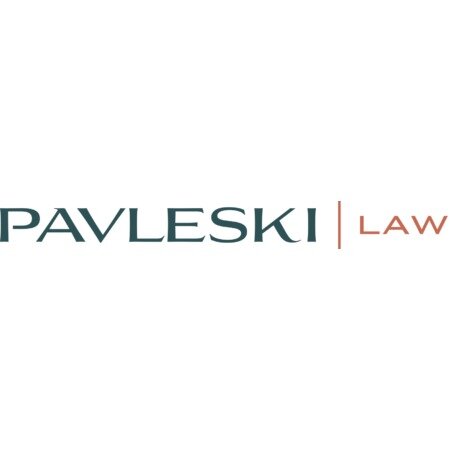Best Family Lawyers in Serbia
Share your needs with us, get contacted by law firms.
Free. Takes 2 min.
Free Guide to Hiring a Family Lawyer
Or refine your search by selecting a city:
List of the best lawyers in Serbia
About Family Law in Serbia
Family law in Serbia governs the relationships, rights, and duties within a family. It covers a wide range of matters including marriage, divorce, child custody, adoption, domestic violence, and inheritance. The Family Law Act, which is the primary legislation in this field, aims to protect the interests and rights of all family members, particularly children and spouses. Understanding these laws can help individuals navigate their family-related issues effectively.
Why You May Need a Lawyer
There are several common situations where individuals may require legal assistance in family matters. These include:
- Divorce: Navigating the legal implications of dissolving a marriage, including asset division and alimony.
- Child Custody and Support: Ensuring fair arrangements for the custody and financial support of children.
- Adoption: Understanding the legal process and requirements for adopting a child in Serbia.
- Domestic Violence: Seeking protection and legal action in situations of domestic abuse.
- Inheritance and Succession: Managing the legal aspects of inheriting property or deciding how your estate will be handled.
In these scenarios, a lawyer can provide guidance, representation, and support to help protect your rights and achieve a favorable outcome.
Local Laws Overview
Family law in Serbia is primarily governed by the Family Law Act of Serbia. Key aspects include:
- Marriage: Legal capacity, rights, and obligations of spouses, and grounds for annulment and divorce.
- Children: Parental rights and responsibilities, custody laws, and principles for child support calculation.
- Adoption: Legal procedures, eligibility criteria, and the rights of adopted children.
- Domestic Violence: Protective measures, restraining orders, and legal recourses available for victims.
- Inheritance: Laws governing the distribution of a deceased person's estate, including testamentary and intestate succession.
Staying informed about these laws is crucial for anyone dealing with family legal issues in Serbia.
Frequently Asked Questions
What are the grounds for divorce in Serbia?
Divorce can be granted for irretrievable breakdown of marriage, such as infidelity, abandonment, or mutual consent.
How is child custody determined?
Custody is determined based on the best interests of the child, considering factors like the child's relationship with each parent and their living situation.
What is the process for adopting a child?
The process involves screening by social services, a legal application, and court approval, ensuring the best interests of the child are prioritized.
How can I protect myself against domestic violence?
Victims can seek protective measures, such as restraining orders, through the court and may access support services from local organizations.
How is property divided in a divorce?
Property division is based on principles of fairness, considering each spouse's contributions and needs, through mutual agreement or court decision.
Can grandparents obtain custody of their grandchildren?
Grandparents can apply for custody if it is in the best interest of the child, often in cases where parents are unable or unfit to care for the child.
How can I contest a will?
A will can be contested on grounds of fraud, undue influence, or if the testator lacked legal capacity when making the will.
What rights do step-parents have?
Step-parents have no automatic legal rights, but can apply for guardianship or adoption to formalize their role in the child's life.
What is legal separation?
Legal separation allows spouses to live apart and resolve issues like asset division and custody, without officially ending the marriage.
Is mediation required in family disputes?
Mediation is encouraged as a way to resolve disputes amicably, but it is not mandatory in most cases.
Additional Resources
The following resources may be helpful for those seeking further information or assistance:
- Ministry of Justice: Provides information on legal services and family law regulations.
- Centre for Social Work: Offers support services for families, children, and victims of domestic violence.
- Legal Aid Offices: Provide legal advice and representation for those unable to afford private lawyers.
- Non-Governmental Organizations: Various NGOs offer counseling and support in family law matters.
Next Steps
If you require legal assistance in a family matter, consider the following steps:
- Research and identify a qualified family law attorney in Serbia to represent your interests.
- Prepare all relevant documents and information related to your case for consultation with your lawyer.
- Seek support and guidance from relevant governmental bodies or community organizations.
- Maintain open and clear communication with your legal counsel to navigate through the legal process effectively.
Understanding your rights and available resources can significantly impact the outcome of your family legal matters.
Lawzana helps you find the best lawyers and law firms in Serbia through a curated and pre-screened list of qualified legal professionals. Our platform offers rankings and detailed profiles of attorneys and law firms, allowing you to compare based on practice areas, including Family, experience, and client feedback.
Each profile includes a description of the firm's areas of practice, client reviews, team members and partners, year of establishment, spoken languages, office locations, contact information, social media presence, and any published articles or resources. Most firms on our platform speak English and are experienced in both local and international legal matters.
Get a quote from top-rated law firms in Serbia — quickly, securely, and without unnecessary hassle.
Disclaimer:
The information provided on this page is for general informational purposes only and does not constitute legal advice. While we strive to ensure the accuracy and relevance of the content, legal information may change over time, and interpretations of the law can vary. You should always consult with a qualified legal professional for advice specific to your situation.
We disclaim all liability for actions taken or not taken based on the content of this page. If you believe any information is incorrect or outdated, please contact us, and we will review and update it where appropriate.
Browse family law firms by service in Serbia
Serbia Attorneys in related practice areas.
Browse family law firms by city in Serbia
Refine your search by selecting a city.

















